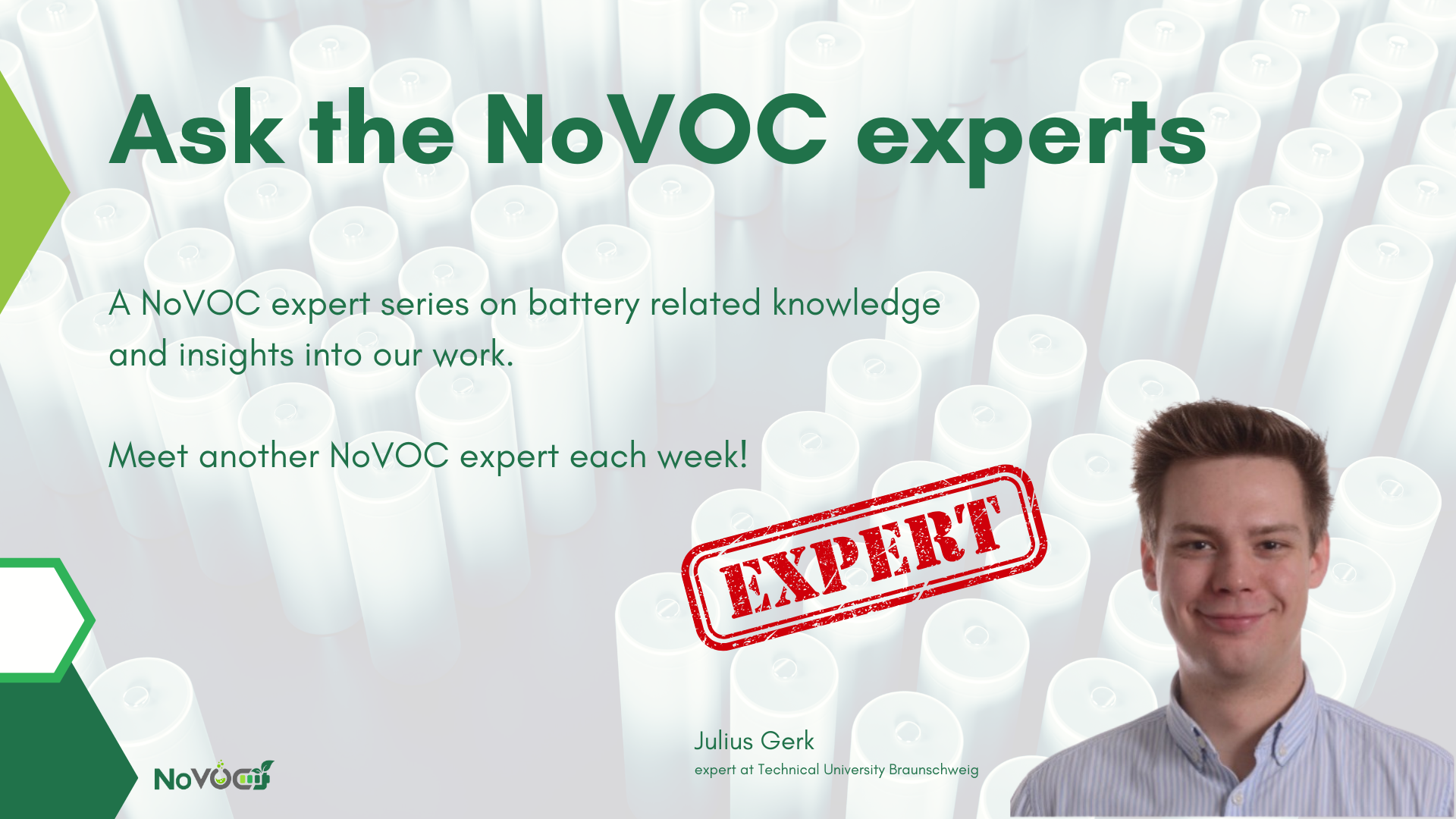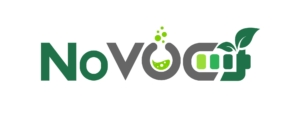
NoVOC “Ask the expert” series with Julius Gerk from Technical University Braunschweig
Have you ever wondered what an extruder does? And how it helps make batteries?
Extruders are mixers with a continuous high intensity, which unite many process-engineering tasks in a single machine. This is thanks to a high torque, variable screw-speed, and adjustable intensity profile. Because of the high intensity, the process can ensure a great homogeneity of the battery materials inside the electrode.
As part of our series “Ask the NoVOC Expert”, our team member Julius Gerk at Technische Universität Braunschweig shares how this powerful piece of equipment is being used in the NoVOC project to support solvent-free battery production.
From Cake Dough to Cathodes: Why Mixing Matters
Mixing battery materials is very similar to making dough for cake – the ingredients have to be dispersed evenly to ensure no clumps of salt or sugar are ruining the taste.
A typical lithium-ion battery consists of various materials like graphite, metal oxides like NMC, a carbon additive to ensure high conductivity, and lastly, a binder holding everything together.
The mixing step of these materials is crucial, as the first processing step influences the later performance of the battery.
The Role of Extruders in Dry Battery Processing
The high shear forces and the high pressure in the processing zone make the extruder a suitable piece of machinery, which can even mix the battery materials continuously, 24 hours, seven days a week.
The dry processing method produces granules, which later can be calendared into a freestanding film, laminated onto a current collector to form an electrode. The properties of the granules determine the electrode, and therefore the electrochemical performance, making the mixing process the key to producing high-quality batteries.
A Cleaner, Smarter Way to Build Batteries
Investigating the extruder for dry processing can help reach our overall goal – making the production of batteries more sustainable and enabling them to charge faster and last longer.
As part of the NoVOC project, we are using extruders to support dry processing methods that eliminate the need for harmful chemicals like VOCs.
At TUBS (Technische Universität Braunschweig), we are exploring how extruders can improve battery performance while making the manufacturing process cleaner and more energy-efficient. This is a big step toward creating greener, safer batteries for the future.
Want to know more about how NoVOC is rethinking battery production, one process at a time? …then follow us on LinkedIn for regular updates on our project!


